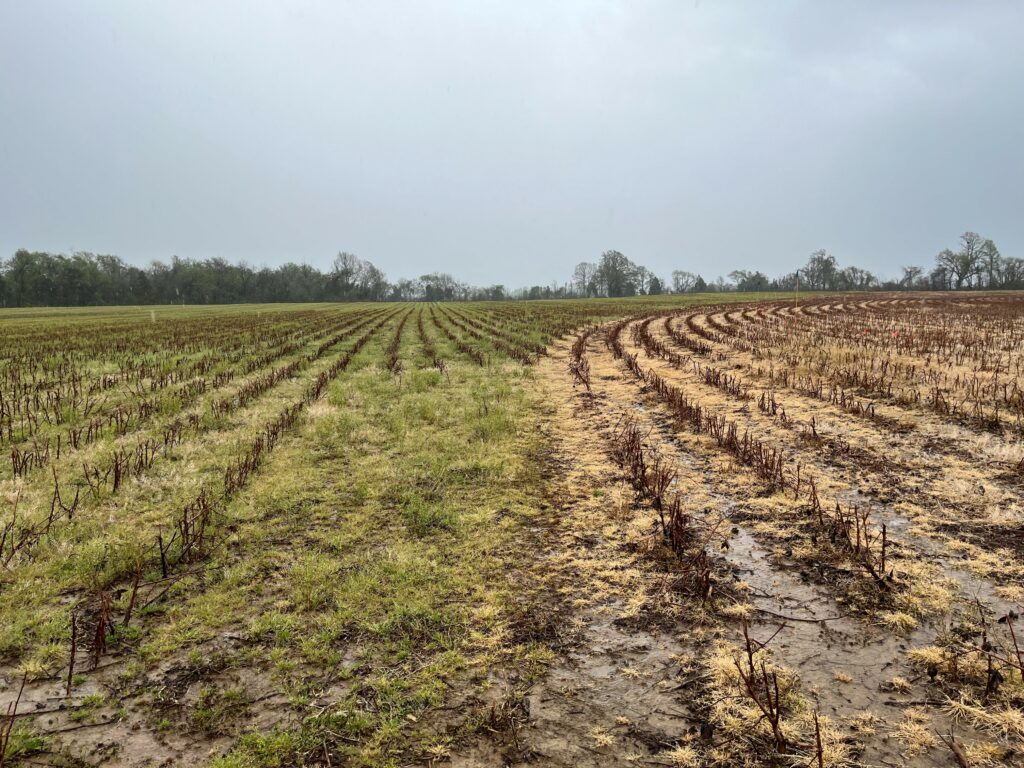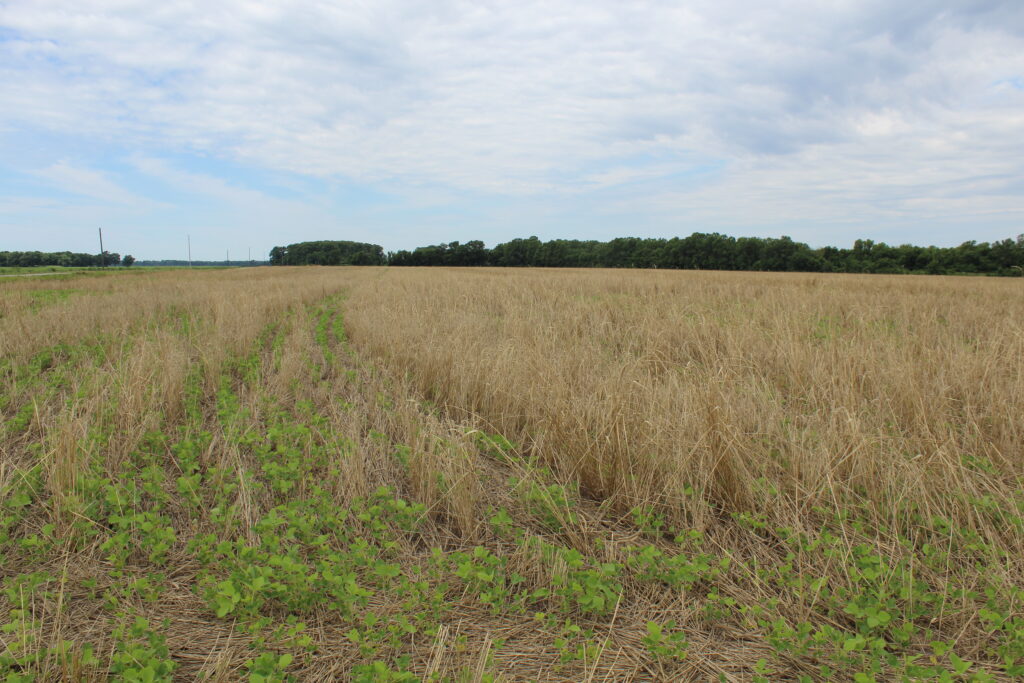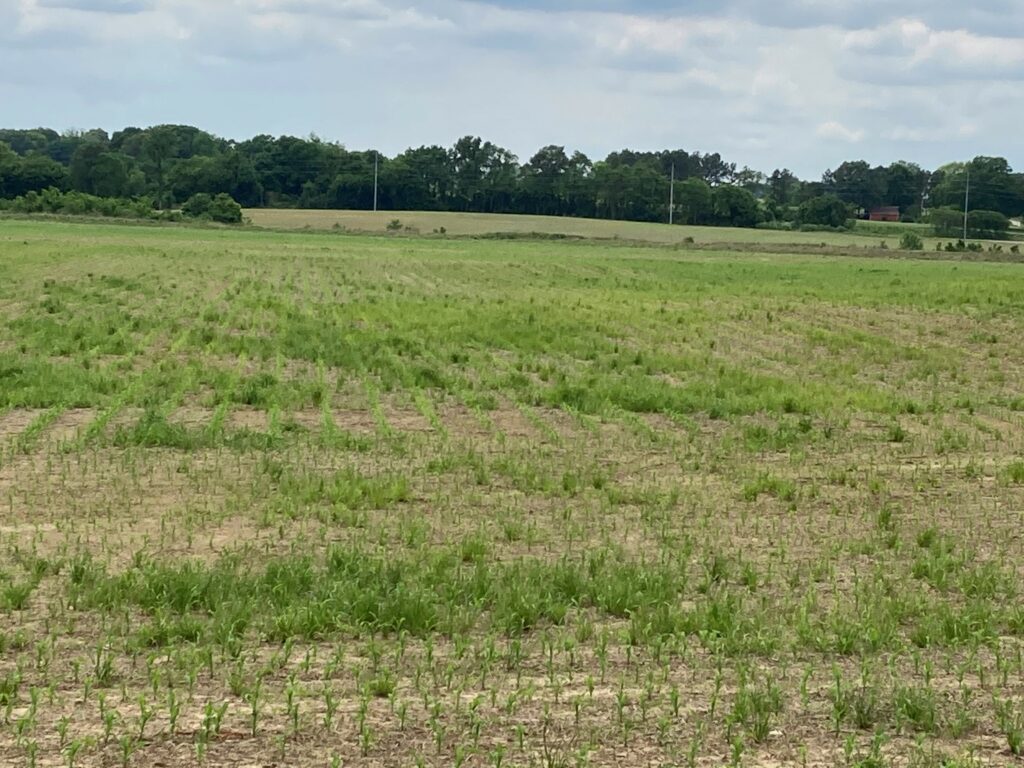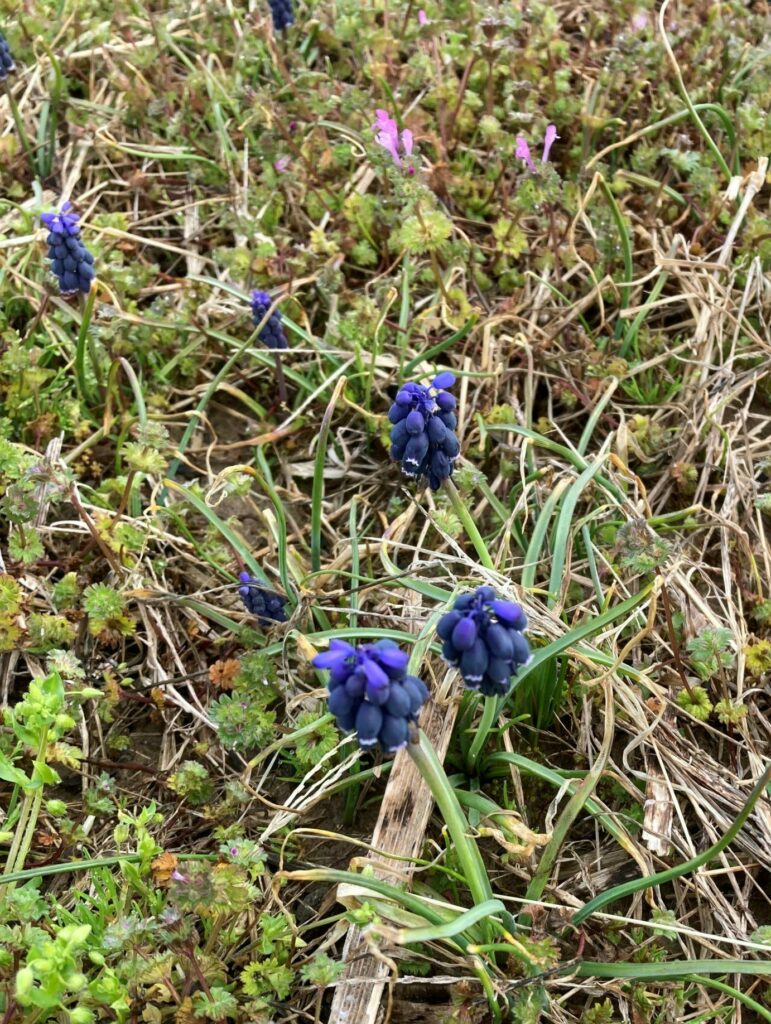
Last spring a good many folks went back “old school” and applied glyphosate alone for burndown and saw very good results. This includes applications made when nighttime temperatures were below freezing (Picture 1).
Continue reading

Last spring a good many folks went back “old school” and applied glyphosate alone for burndown and saw very good results. This includes applications made when nighttime temperatures were below freezing (Picture 1).
Continue reading

It is cover crop burndown time. There is no one size fits all recommendation for cover crop control. It really depends on the environment and the cover crop species in the field. With rain predicted over the next few days, one should be mindful that cover crop burndown can be tricky during periods of saturated soil conditions. This is particularly true with systemic herbicides where translocation of those herbicides to growing points can become limited. Continue reading

Ryegrass was a major issue last spring. For managing GR ryegrass, it is best to do it as early as practical and utilize a clethodim + glyphosate tankmix. This tankmix needs to be applied at least 30 days ahead of corn planting to use a clethodim rate that has any chance of controlling well established ryegrass. Continue reading

There have been questions on control of wild garlic, grape hyacinth and in a few cases, star-of-Bethlehem. These three weeds, in the Lily family, are often mistaken for each other as they all derive from bulbs and are low-growing perennials. Continue reading
 Most of the commercial and state soil testing laboratories in and around Tennessee use and prescribe fertilizer recommendations based on Mehlich 3 soil test extraction method. Most growers may receive soil test results from laboratories that utilizes Mehlich 3 soil test extraction method. However, The University of Tennessee gives fertilizer recommendations based on the Mehlich 1 extractant. This makes it difficult for growers to take advantage of The University of Tennessee fertilizer recommendations. Currently, the Mehlich 1 and 3 conversion equations used in TN were derived from the University of Kentucky, which were based on Kentucky soils (Table 1). Continue reading
Most of the commercial and state soil testing laboratories in and around Tennessee use and prescribe fertilizer recommendations based on Mehlich 3 soil test extraction method. Most growers may receive soil test results from laboratories that utilizes Mehlich 3 soil test extraction method. However, The University of Tennessee gives fertilizer recommendations based on the Mehlich 1 extractant. This makes it difficult for growers to take advantage of The University of Tennessee fertilizer recommendations. Currently, the Mehlich 1 and 3 conversion equations used in TN were derived from the University of Kentucky, which were based on Kentucky soils (Table 1). Continue reading
Thanks to all the agents and producers who entered the 2023 TN Top Soybean Yield Contest sponsored by Tennessee Soybean Promotion Board. There were over 50 producers across TN who participated in the 2023 contest. See the winners below!
For more information, please contact your local County Extension office. Notice of Intent for the 2024 Yield Contest are due in early September.
Complete contest rules and forms are available at your County Extension Office